Wellbeing and Inclusion
Mrs Courtney Hoffmann - Assistant Principal
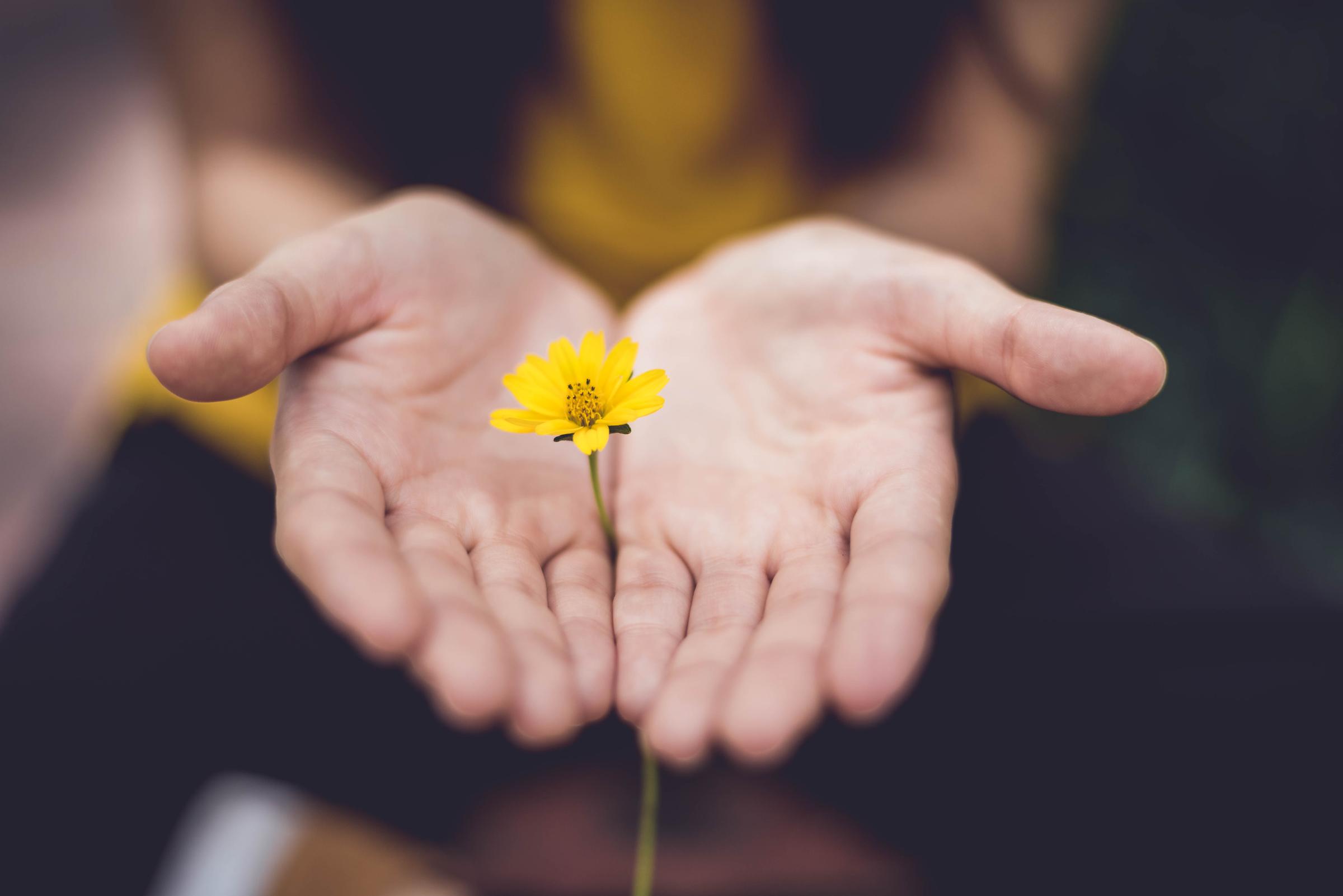
Wellbeing and Inclusion
Mrs Courtney Hoffmann - Assistant Principal
Dear Karoo PS Community,
Happy first day of the month! As we begin the month of November, it is timely to revisit our approach to wellbeing at KPS, as well as the supports that can be accessed by your child.
At Karoo PS, supporting our students, staff and community's wellbeing is a priority. The way in which we do this is part of the 'KPS Approach to Student Wellbeing' and our "KPS Wellbeing Supports.'
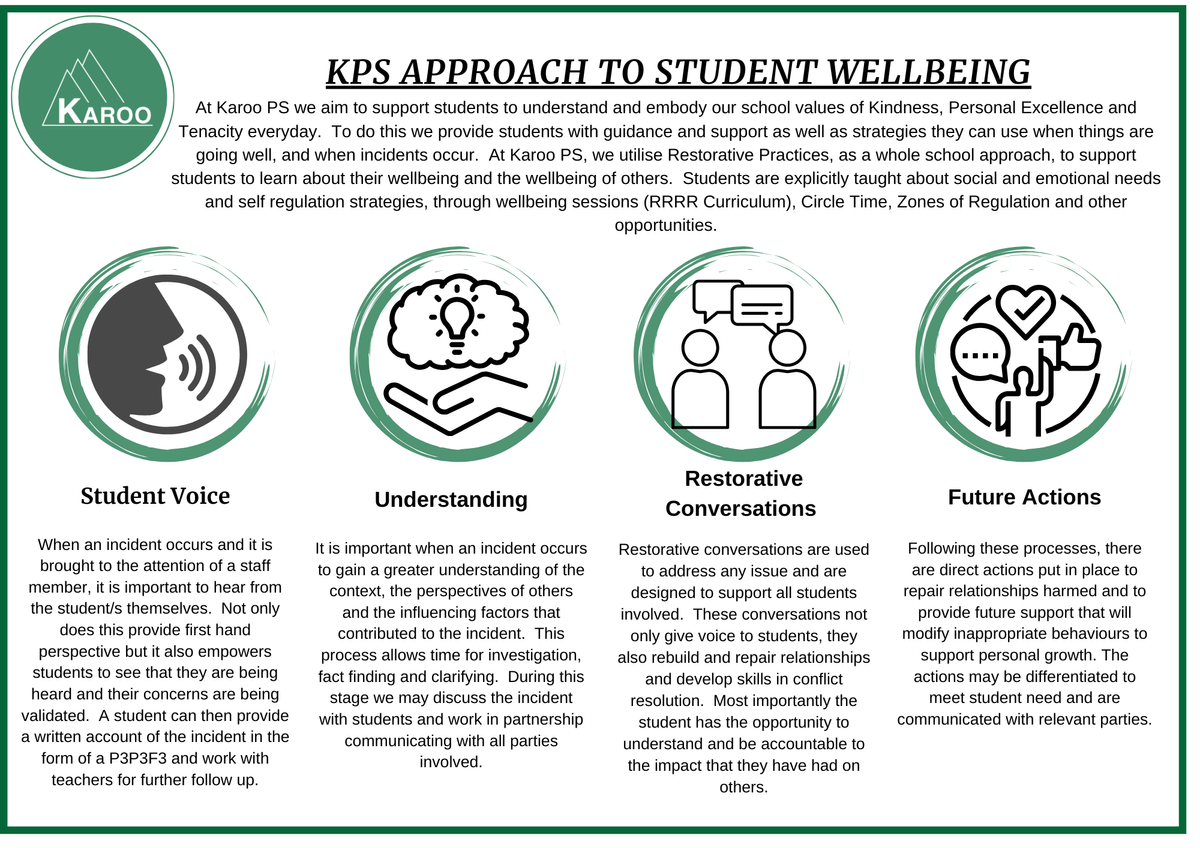

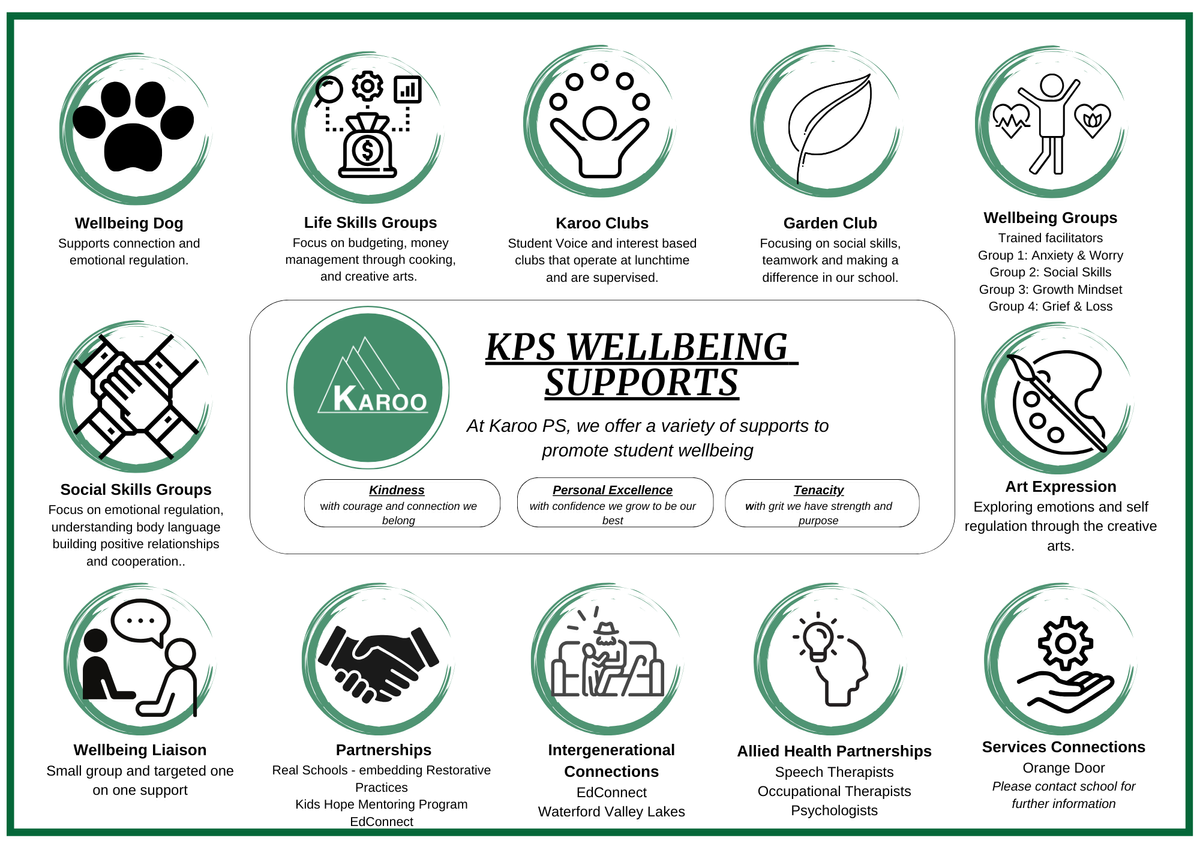

As part of our community, you can also access The Orange Door, if you require further advice or support in a particular area. Please find the contact details below.

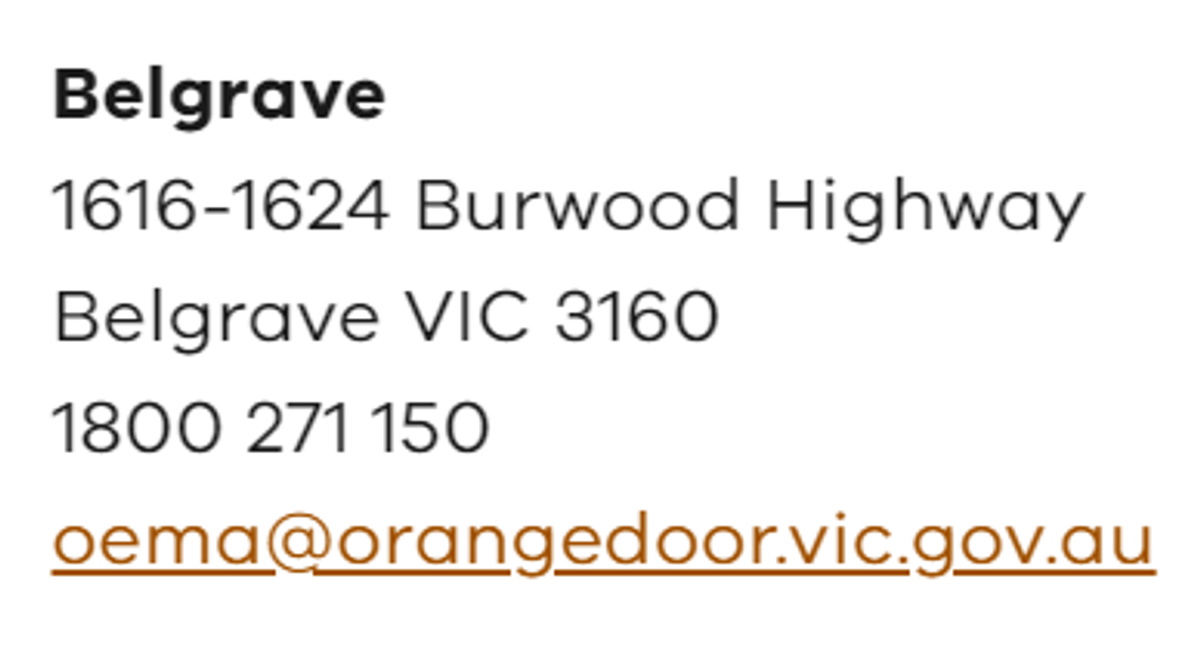


The RRRR Curriculum learning materials help primary students develop their social, emotional, and positive relationship skills. There are 8 topics that are implemented over the course of the year. At Karoo PS, the RRRR curriculum forms part of KPS Wellbeing Scope and Sequence, which also includes learning around the Zones of Regulation and School Wide Positive Behaviour Support focus in weekly wellbeing lessons. In Term 4, our students are focusing on the following topics: Positive coping, Help-seeking, Gender and Identity, and Positive Gender relations. Please find further information below regarding the topics and the focus for each year level. If you have any further quesitons, please see your child's classroom teacher.
TOPIC 3: POSITIVE COPING
Learning activities in this topic provide opportunities for students to identify and discuss different types of coping strategies. When children and young people develop a language around coping, they are more likely to be able to understand and deliberately utilise a range of productive coping strategies and diminish their use of unproductive coping strategies. Students learn to extend their repertoire of coping strategies and benefit from critical reflecting on their own choices and being exposed to alternative options. Activities introduce students to the concept of self-talk and practice using positive self-talk to approach and manage challenging situations. Positive self-talk is a key strategy for coping with negative thoughts, emotions and events. It is associated with greater persistence in the face of challenge, and can be learnt or strengthened through practice.
TOPIC 6: HELP-SEEKING
Learning activities in this topic area are designed to help students discuss the importance of seeking help and providing peer support when dealing with problems that are too big to solve alone. This helps to normalise and destigmatise help-seeking behaviour. Scenario-based activities help students identify situations in which help should be sought, identify trusted sources of help, and practice seeking help from peers and adults.
TOPIC 7: GENDER AND IDENTITY
Learning activities within this topic assist students to challenge stereotypes and critique the influence of gender norms on attitudes and behaviour. They learn about key issues relating to human rights and gender identity, and focus on the importance of respect within relationships. The activities promote respect for diversity and difference.
TOPIC 8: POSITIVE GENDER RELATIONS
Learning activities within this topic focus on building an understanding of the effects of gender-based violence and focus on the standards associated with respectful relationships. Students develop the skills needed to solve problems, set boundaries within relationships, and play an active role within the prevention of gender-based violence. They develop peer support and help-seeking skills that can be applied in response to situations involving gender-based violence in family, peer, community or on-line relationships.
Overview of learning experience at Karoo PS
through the Resilience, Rights and Respectful Relationships Curriculum (RRRR)
Foundation, Term 4 Focus:
Topic 7: Gender and Identity | Topic 8: Positive Gender Relations |
Activities will assist students to: • Reflect on their gendered identity • Develop an awareness of positive and negative gender norms • Challenge negative gender norms • Develop an appreciation of difference.
| Activities will assist students to: • Develop an understanding of the negative impacts of gender-based violence • Develop an understanding of the positive impact f respectful gender relations • Practice enacting skills to support positive peer relations • Identify and practice assertive and help-seeking strategies to help keep themselves safe in situations involving gender-based violence. |
Year 1, Term 4 Focus:
| Topic 3: Positive Coping | Topic 7: Gender and Identity |
Activities will assist students to: • Reflect on their emotional responses • Discuss ways in which they can take responsibility for their actions • Describe ways to express emotions which show awareness of the feelings and needs of others • Practice techniques to deal with feelings of fear, frustration and anger. | Activities will assist students to: • Reflect on their identity: likes, dislikes, strengths • Develop an awareness of positive and negative gender norms • Challenge negative gender norms • Develop an appreciation of difference.
|
Year 2, Term 4 Focus:
| Topic 6: Help Seeking | Topic 8: Positive Gender Relations |
Activities will assist students to: • Practise solving simple interpersonal problems • Identify ways to care for others, including ways of making and keeping friends • Discuss the importance of seeking help when dealing with problems that are too big to solve alone • Practise seeking help from adults and peers.
| Activities will assist students to: • Develop an understanding of gender-based violence as involving unfair and hurtful behaviours based on ideas about what it means to be a boy or a girl • Identify examples of the ways that gender-based violence can include things that people say (verbal), things they do to others’ bodies or possessions (physical) or things people do that affect how safe or welcome people feel e.g. ignoring, leaving out, laughing at (psychological) • Examine the effects of physical, verbal and psychological gender-based violence • Identify and practice respectful and gender friendly behaviours • Develop and practice assertive and help seeking strategies to protect themselves when they feel unsafe in situations involving gender-based violence. |
Year 3, Term 4 Focus
| Topic 3: Positive Coping | Topic 7: Gender and Identity |
Activities will assist students to: • Investigate how emotional responses vary in depth and strength • Identify and describe strategies to manage and moderate emotions in a range of familiar and unfamiliar situations • Identify a range of productive coping strategies for use in different situations • Learn and practise self-calming techniques.
| Activities will assist students to: • Analyse their multifaceted identities • Differentiate between sex and gender • Identify the restricting effects of negative gender norms • Identify the enabling effects of positive gender norms • Develop an understanding of the influence of the media and literature in the construction of gender norms • Challenge negative gender norms experienced in their lived environments. |
Year 4, Term 4 Focus:
| Topic 6: Help Seeking | Topic 8: Positive Gender Relations |
Activities will assist students to: • Identify communication skills that enhance peer support and help-seeking • Identify a range of conflict resolution and help-seeking strategies to negotiate positive outcomes to problems • Discuss the concept of leadership and identify situations where it is appropriate to adopt this role • Describe and apply strategies that can be used in situations that make them feel uncomfortable or unsafe.
| Activities will assist students to: • Identify different forms of gender based violence, including physical, verbal and psychological • Examine the effects of gender-based violence on targets, witnesses and perpetrators • Describe and demonstrate what respectful, gender inclusive behaviours look like in action informed by human rights • Assess conflict situations to consider possible responses (safely end, intervene or withdraw) • Describe and practice help-seeking skills and strategies that can be used when encountering uncomfortable or unsafe situations involving peers or adults. |
Year 5, Term 4 Focus:
| Topic 3: Positive Coping | Topic 7: Gender and Identity |
Activities will assist students to: • Identify a range of coping strategies to help them deal with intense emotions • Identify the influence of self-talk on their actions and emotions • Identify and explain factors that influence effective communication in a variety of situations.
|
Activities will assist students to: • Analyse the impact of peer and adult actions in maintaining or changing contemporary gender norms • Develop an awareness of the impact of gender norms on the attitudes and behaviours of those entering adolescence • Identify the standards and associated actions that underpin respectful gender relations. |
Year 6, Term 4 Focus:
| Topic 6: Help Seeking | Topic 8: Positive Gender Relations |
Activities will assist students to: • Identify situations in which they should seek help in working through problems • Identify a list of trusted people to seek out when needing help • Normalise and de-stigmatise help-seeking behaviour • Contribute to groups and teams.
| Activities will assist students to: • Identify different manifestations of gender-based violence, including physical, verbal, psychological and sexual, and the ways in which these types of violence can play out in face-to-face and digital environments • Explore the relationship between negative gender norms and acceptance of gender-based violence • Identify and practice behaviours that demonstrate respect and recognition of the rights of others within interpersonal relationships • Demonstrate use of protective and assertive behaviours that can be used to maintain safety or dignity in situations involving gender based violence • Demonstrate proactive peer support and help seeking strategies that can be used in response to instances of gender-based violence. |
The Gardening Club has continued to be active around our wonderful school. They are currently working on tidying up the area behind the Year 2 classrooms. The Gardening Club students have been having fun weeding and seeing the difference at the end of each of their sessions. There is also a lot of excitement around the size of some of the weeds they pull out! What amazing tenacity and kindness, working together to make our school shine!
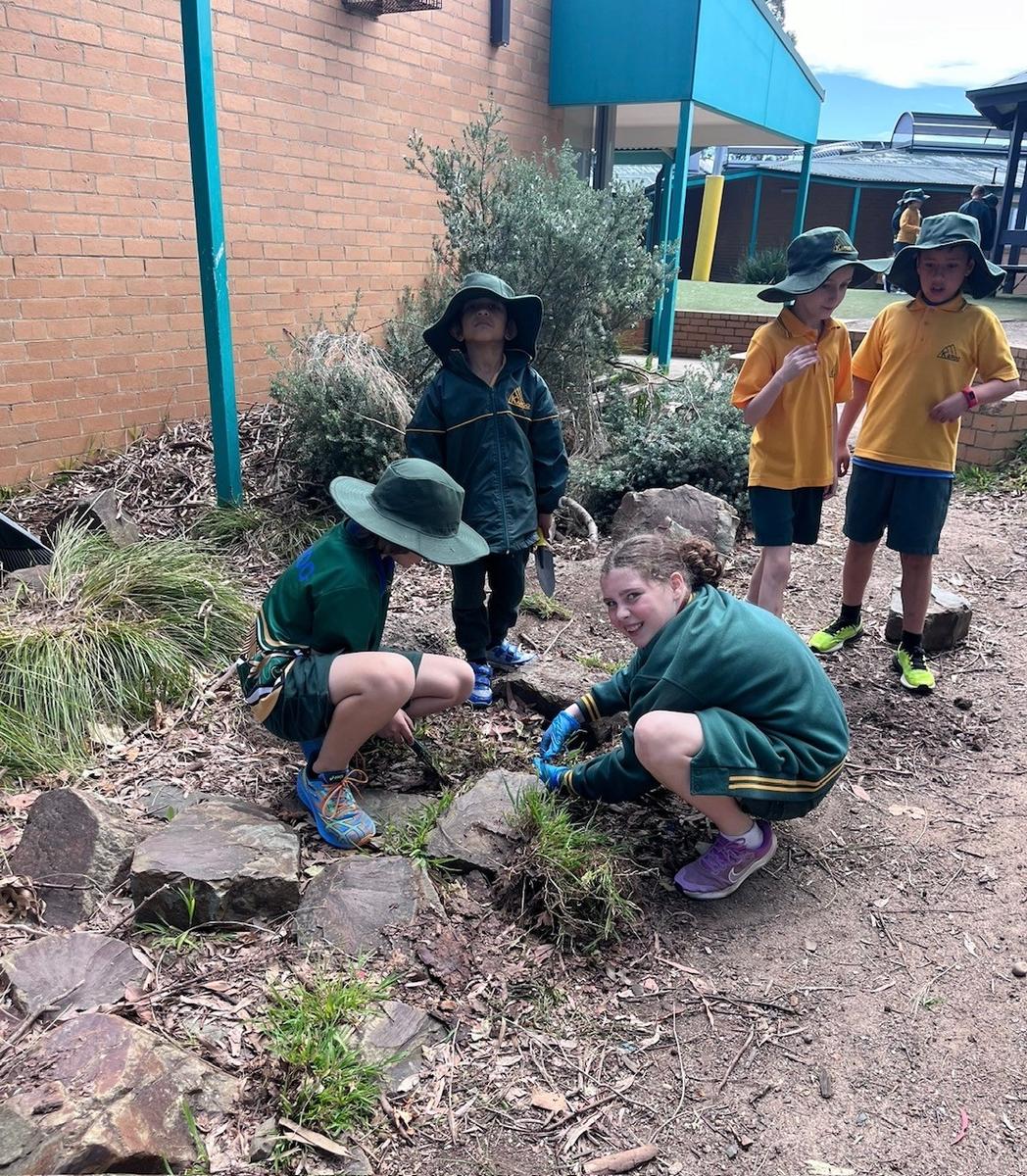
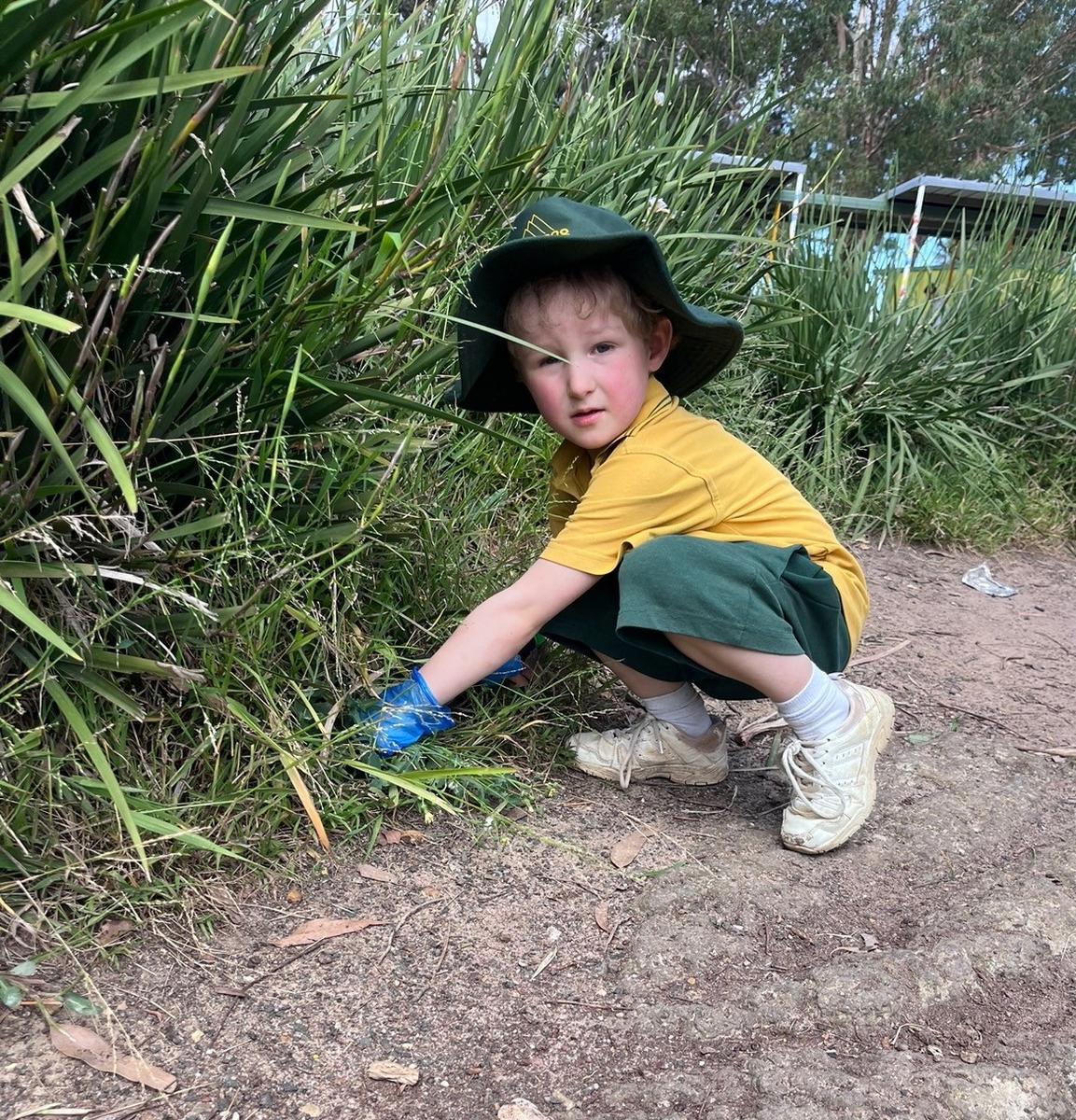
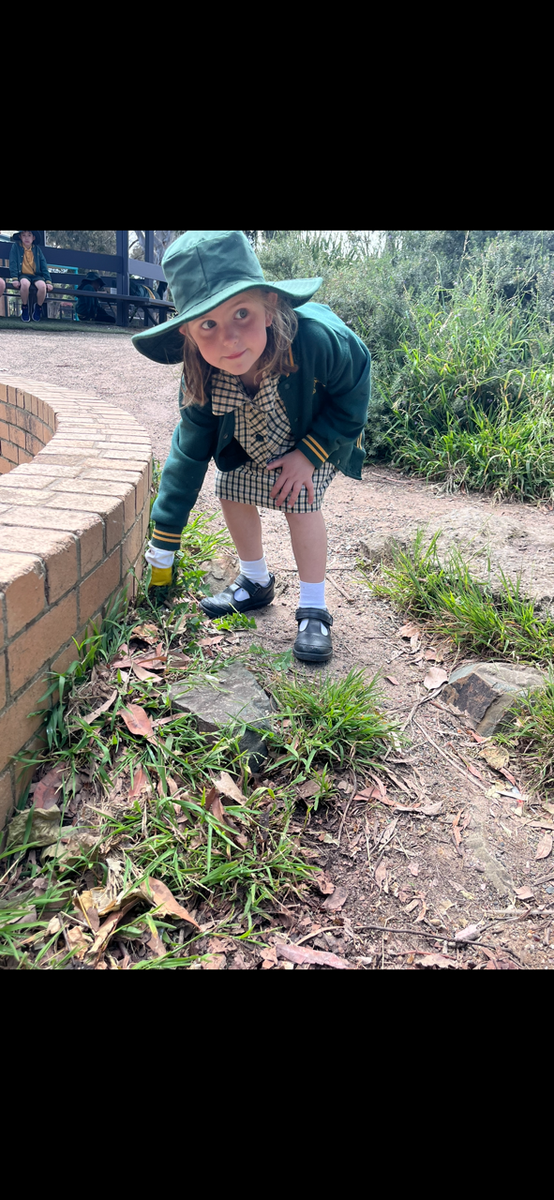
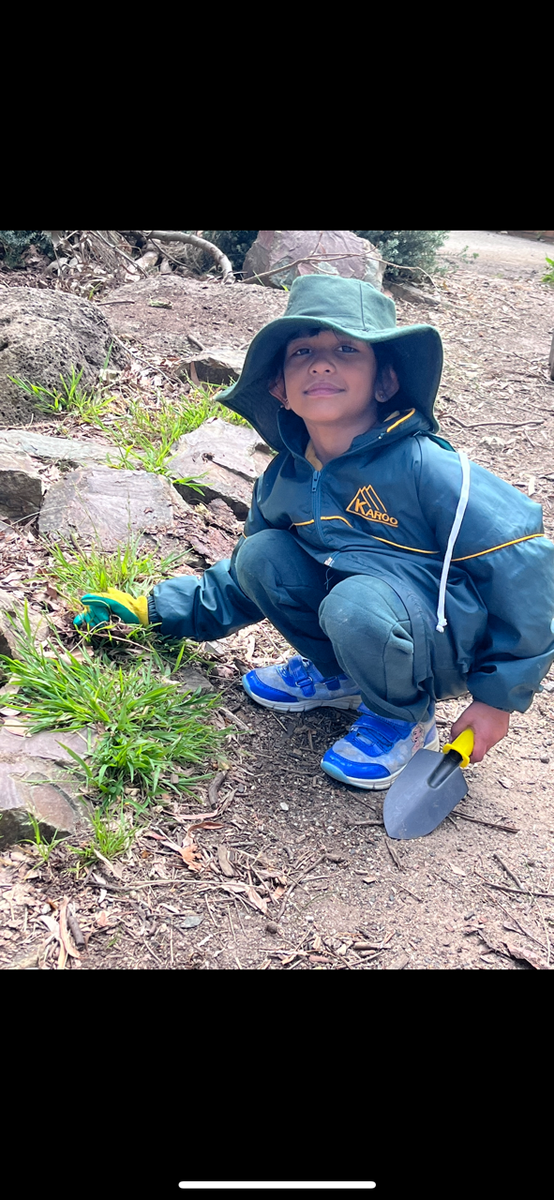
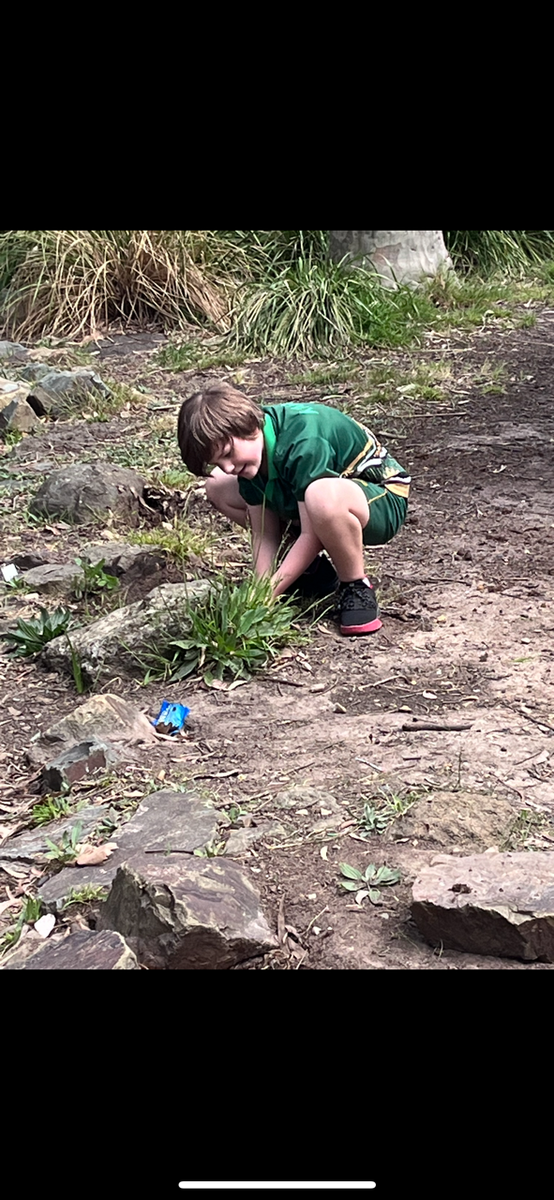
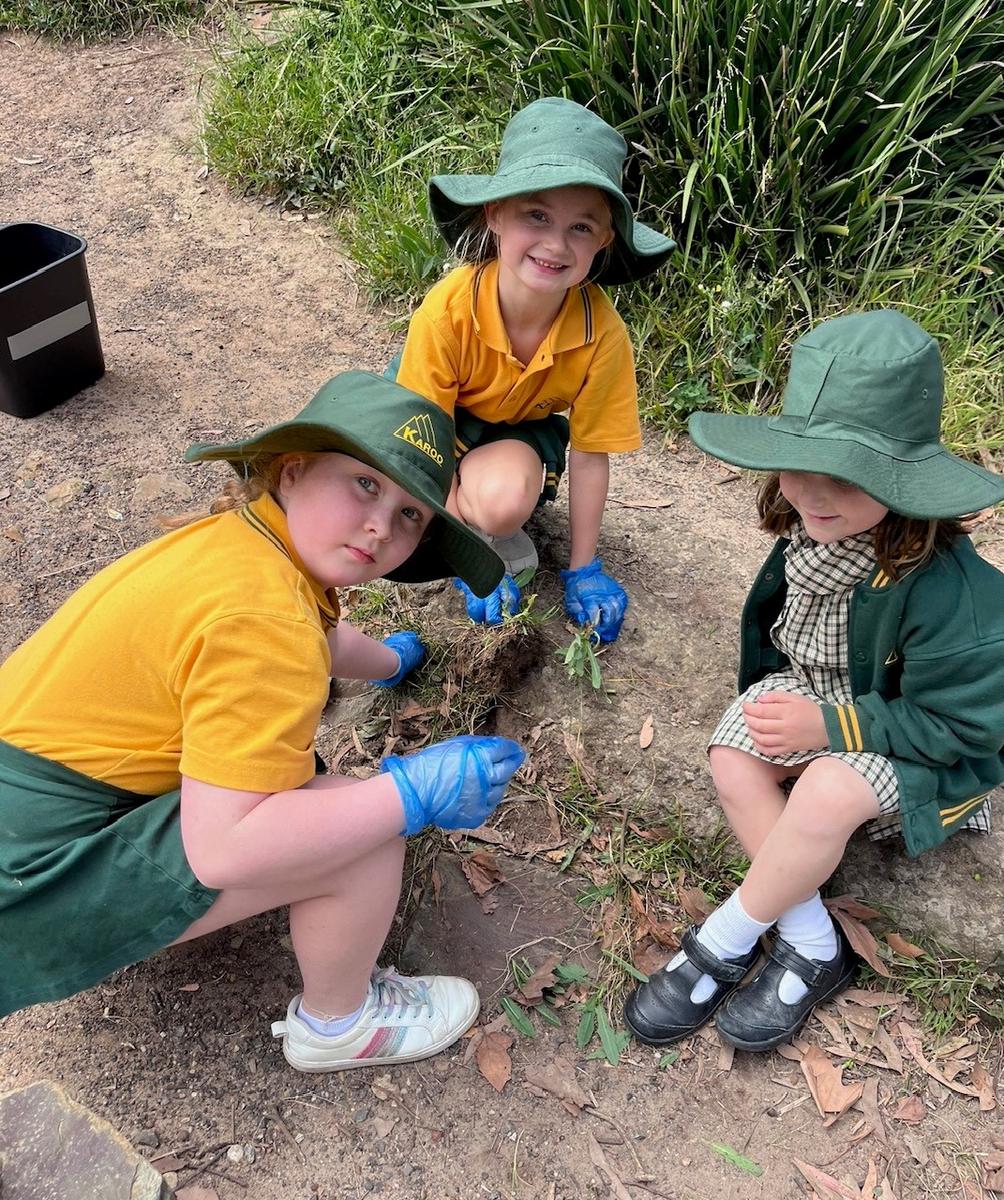
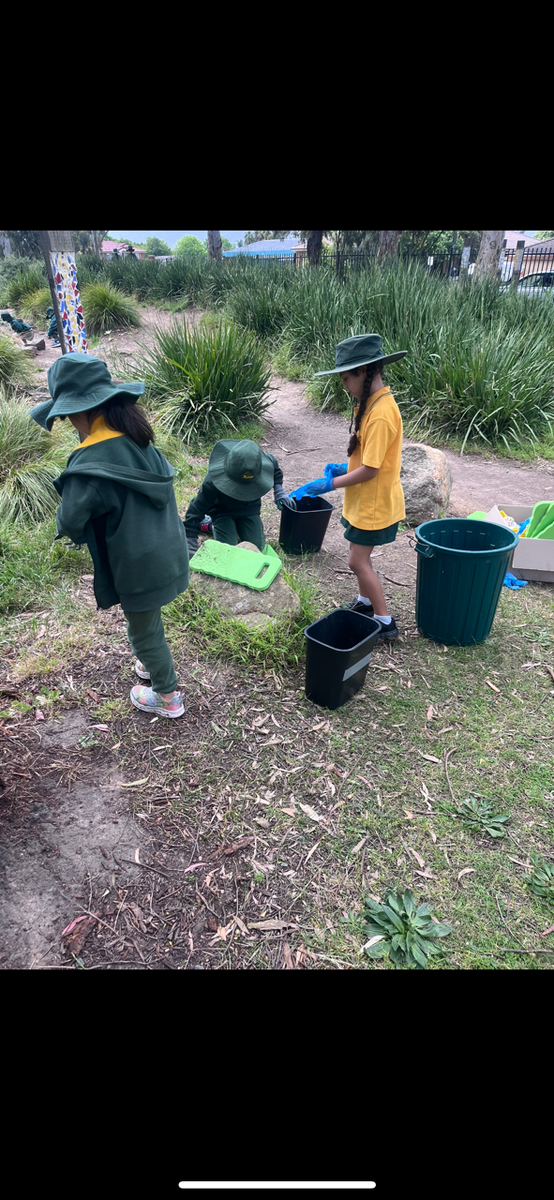
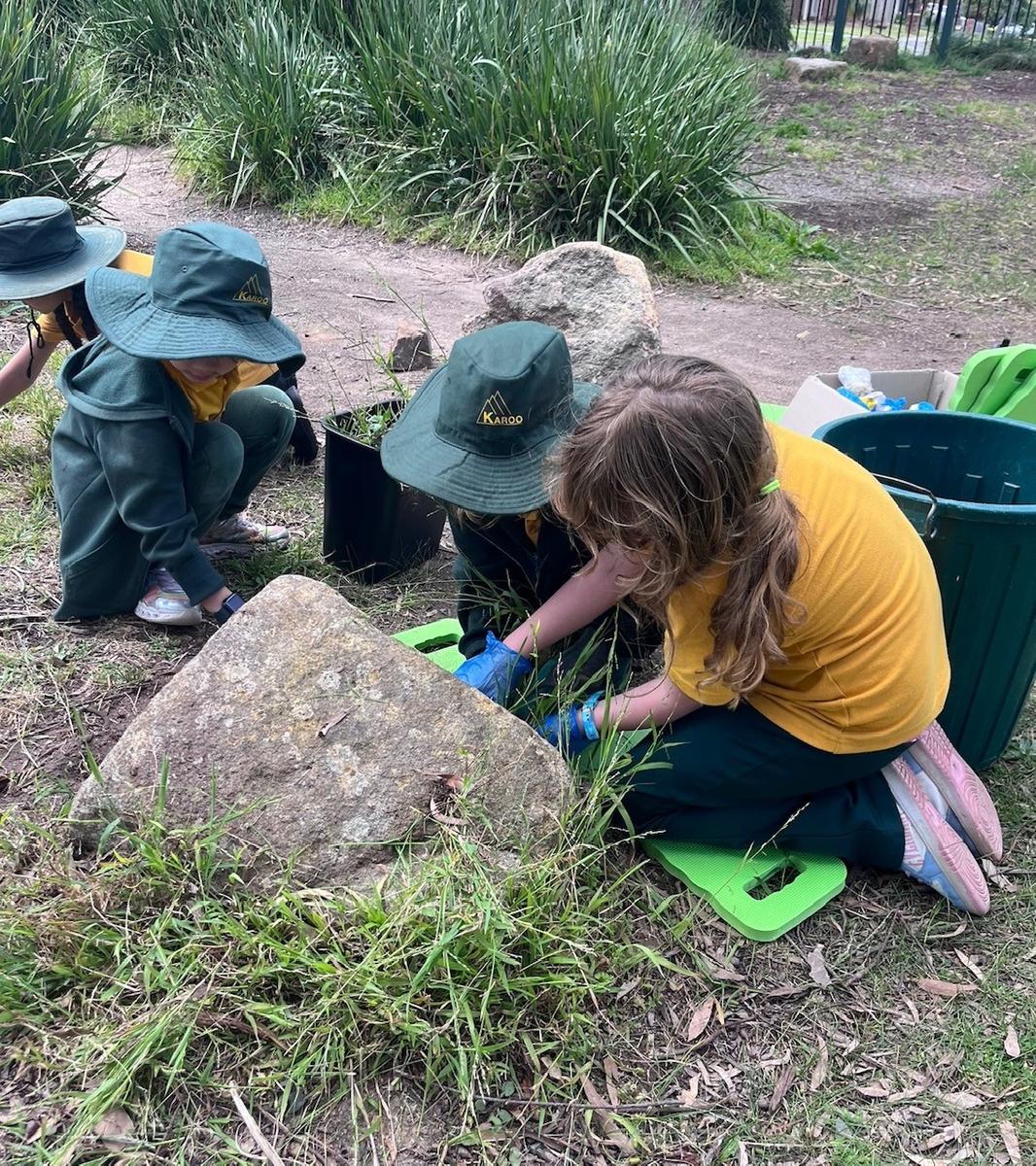
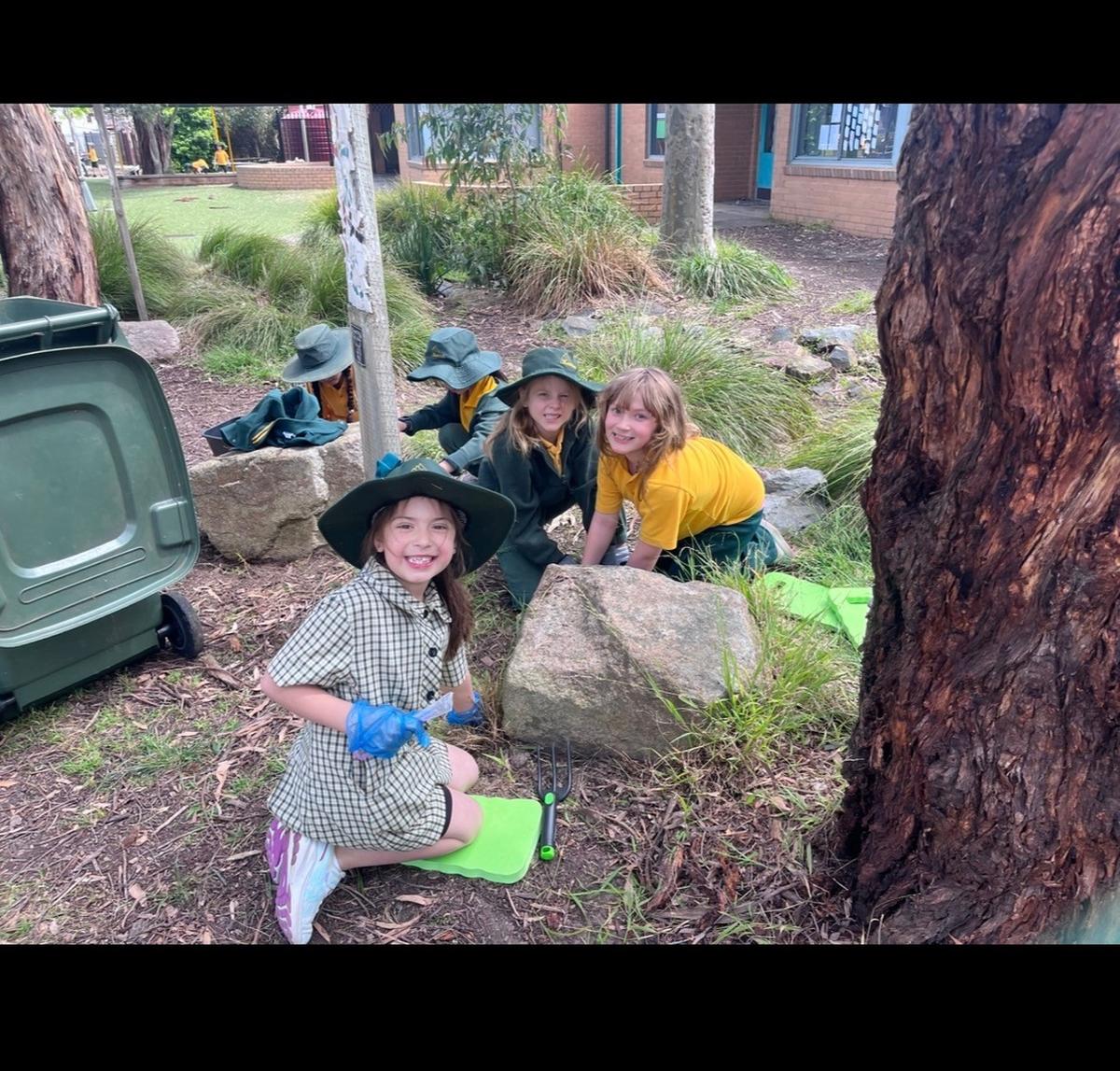









Enjoy the next few weeks and I look forward to seeing you around our sensational school!
Kind Regards,
Courtney Hoffmann

